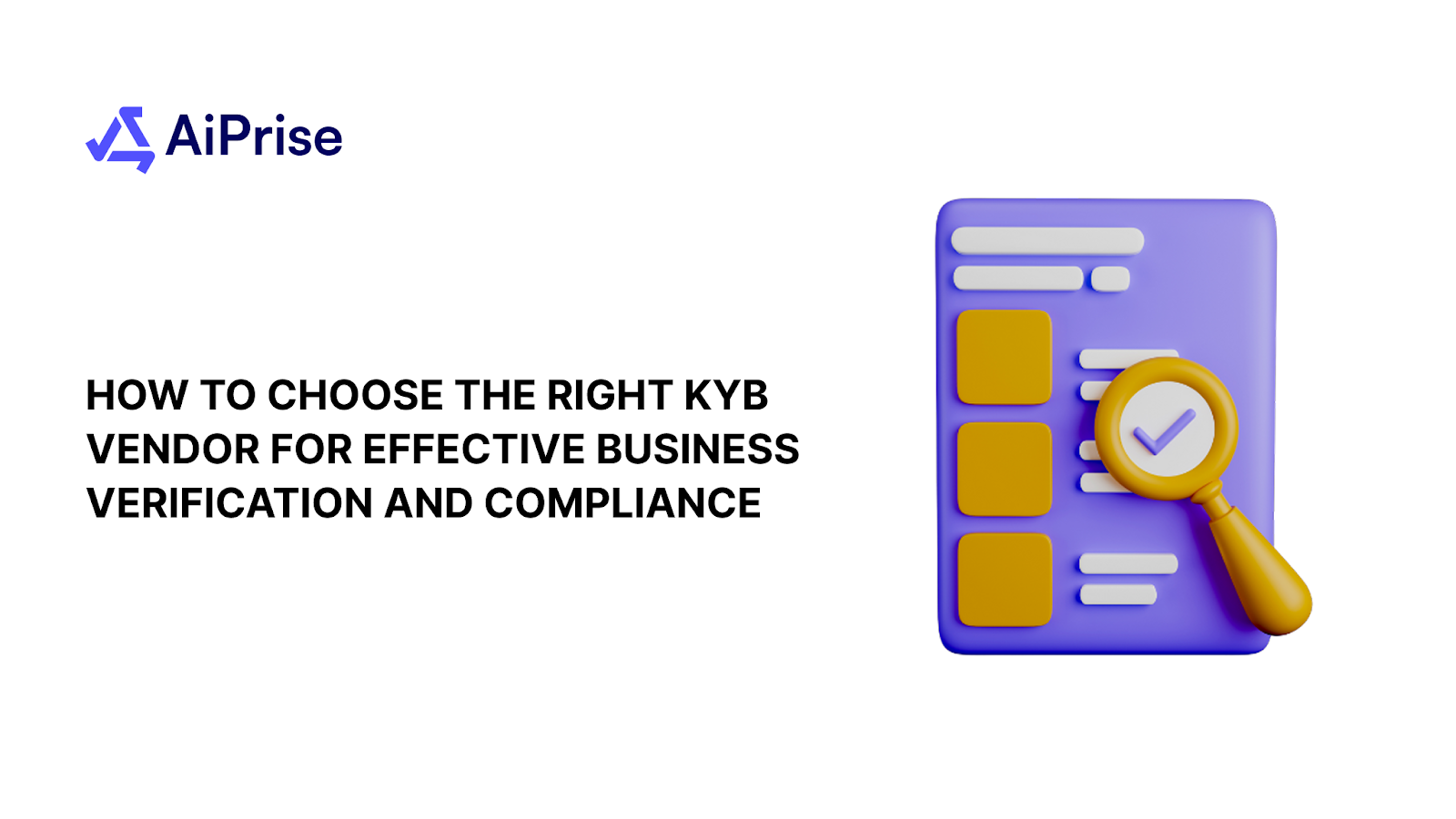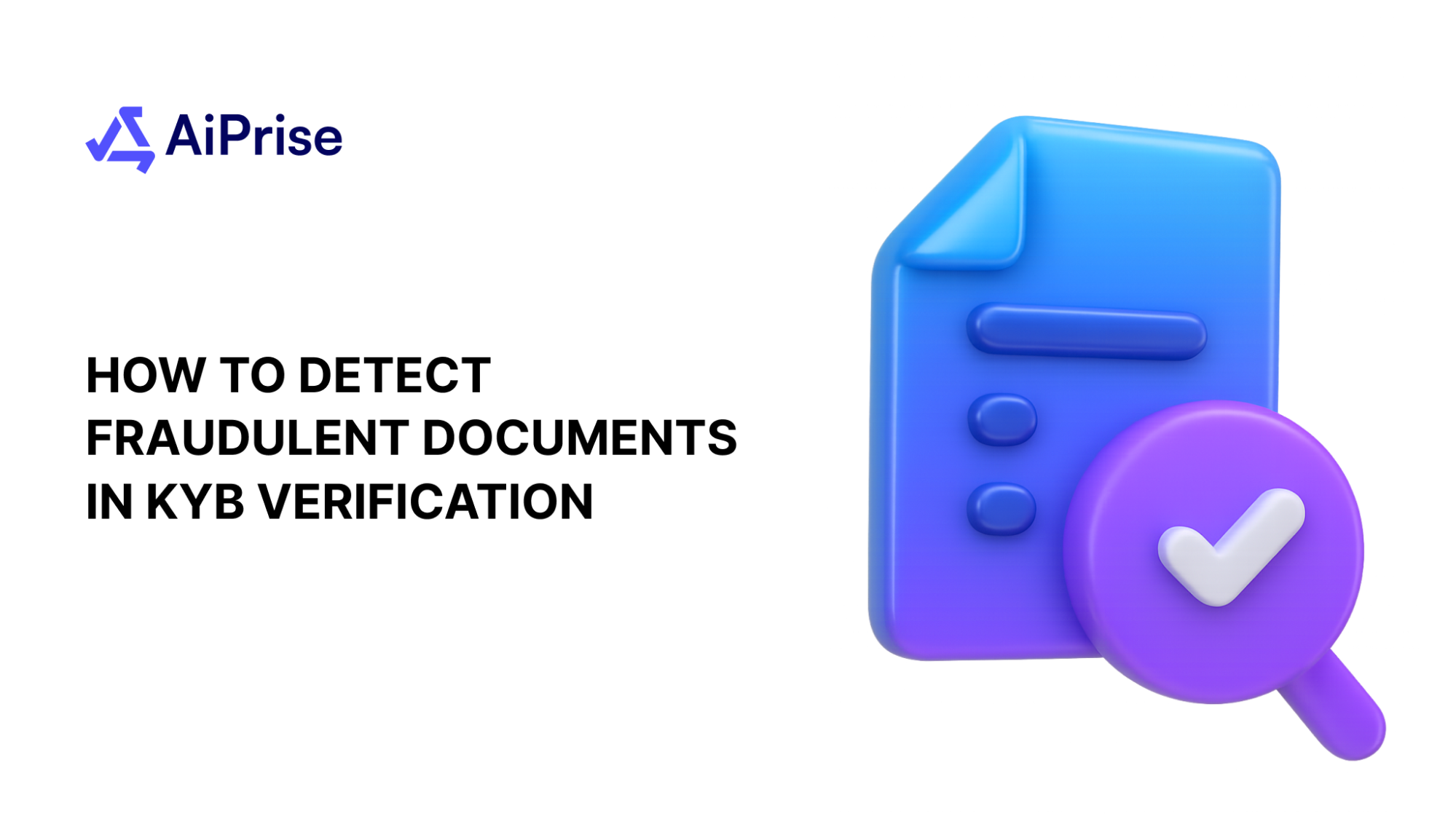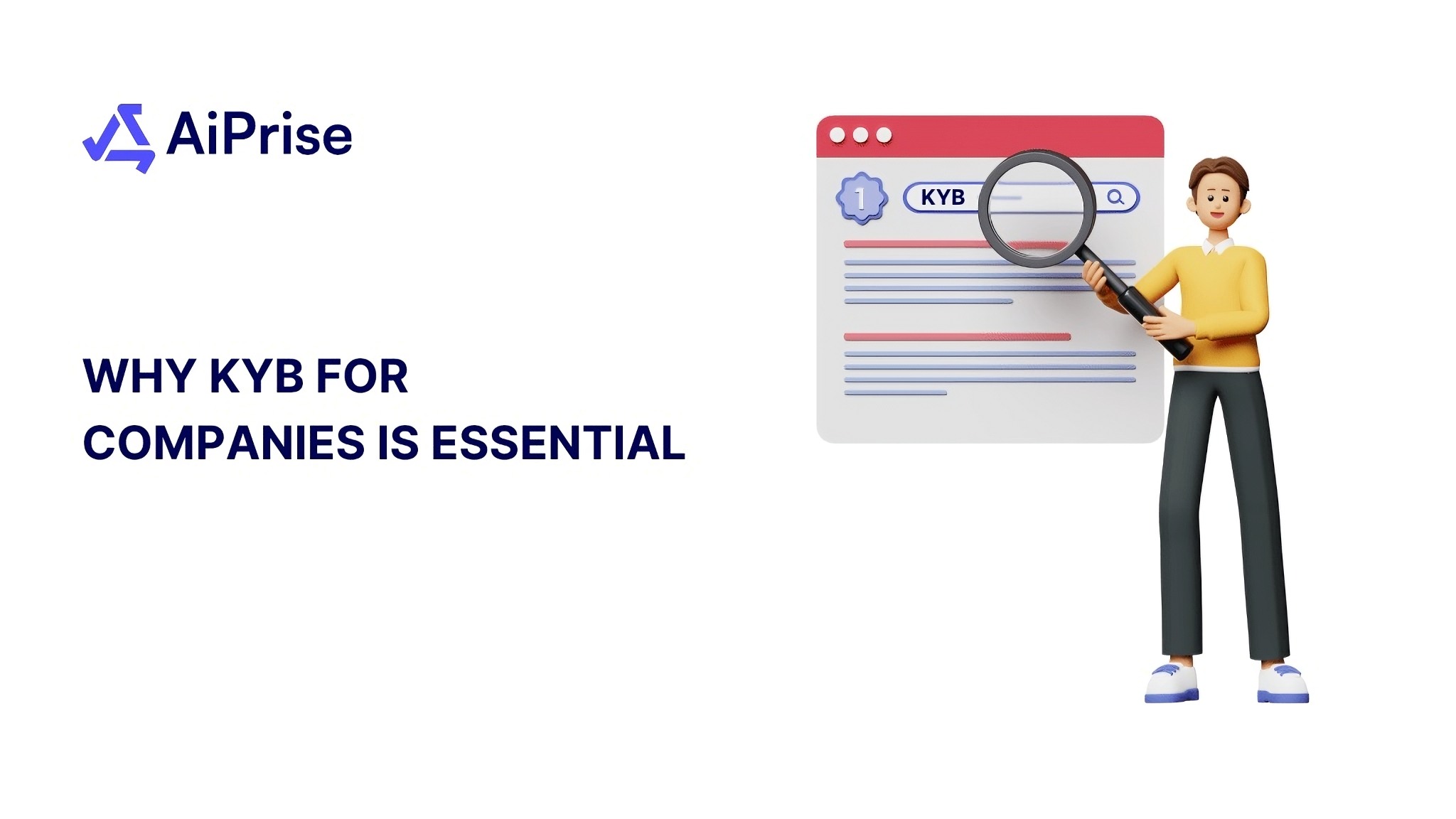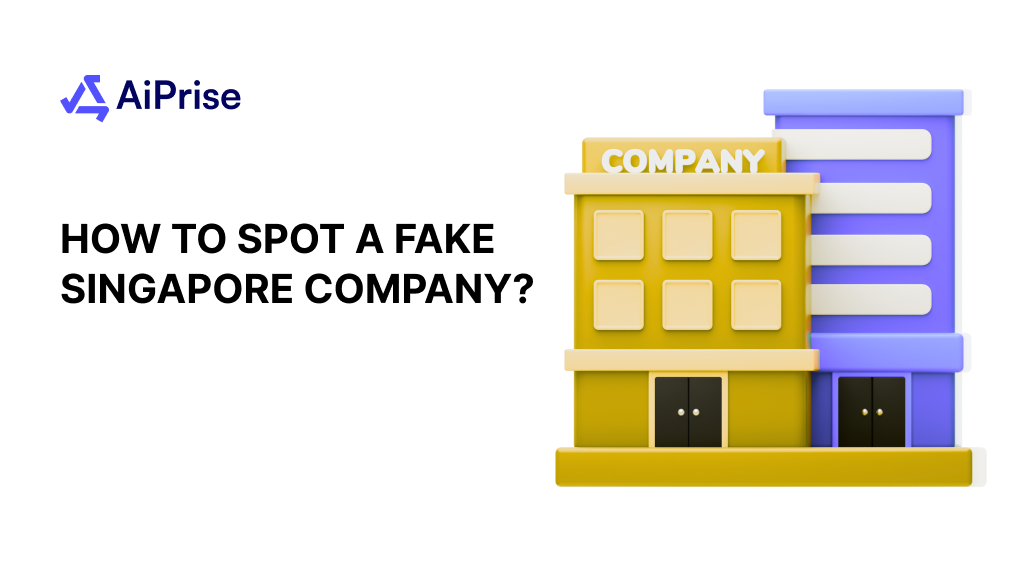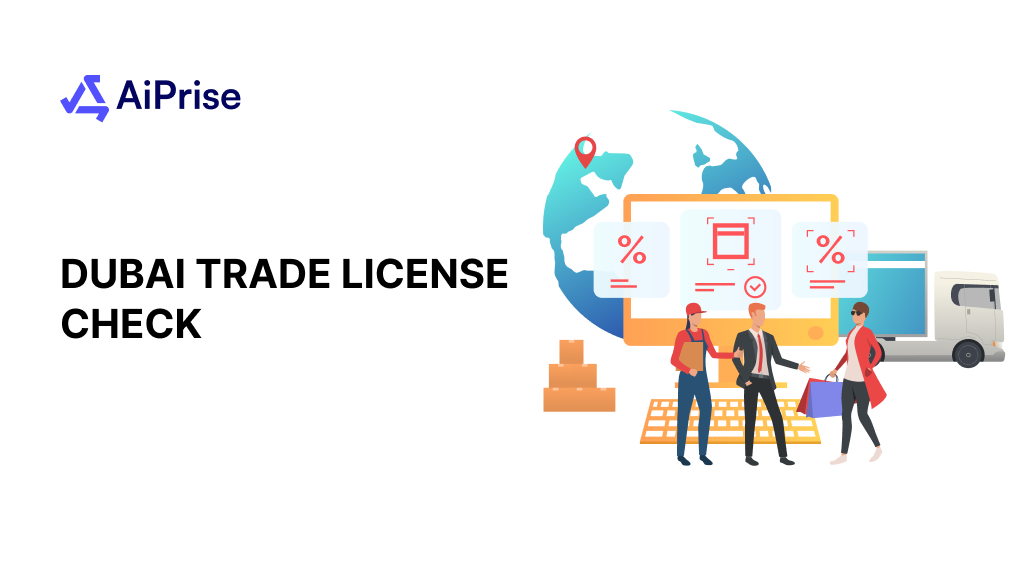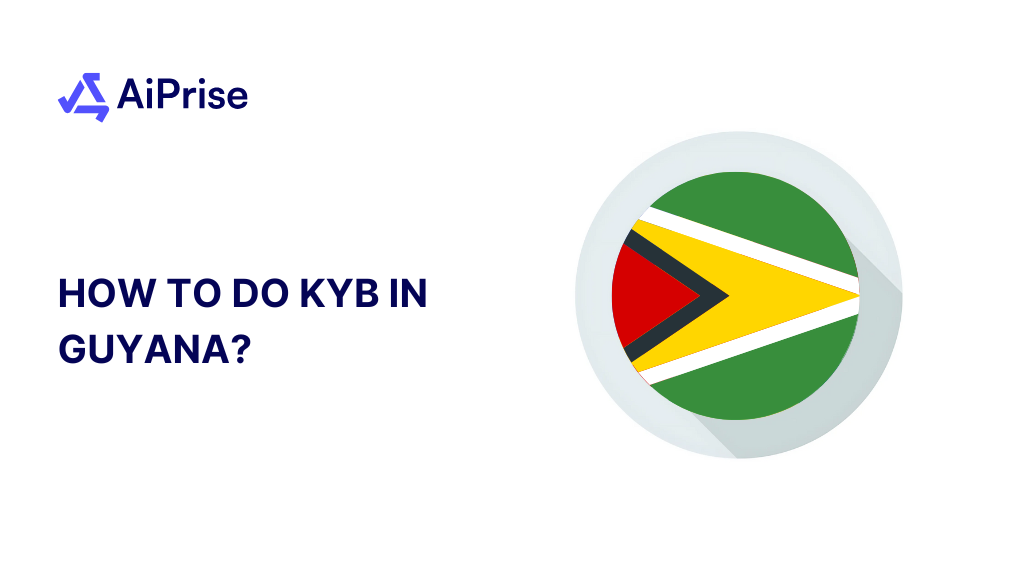AiPrise
11 min read
May 19, 2025
How to Verify Businesses from Guinea?

Key Takeaways










The Republic of Guinea is rapidly emerging as an excellent destination for international business and investment, largely driven by its ample natural resources, including bauxite, iron ore, and gold. With Foreign Direct Investment (FDI) projected to account for a remarkable 17.4% of its GDP, the country’s economic landscape is on the rise. As Guinea opens its doors to more global partnerships, businesses must remain vigilant when verifying potential partners.
In this blog, we will walk you through the critical steps to verify businesses in Guinea. By understanding these essential practices, financial institutions, payment providers, and other compliance-focused sectors can ensure their partnerships are both secure and legally compliant.
Why Verifying Businesses in Guinea Matters

Engaging with businesses in Guinea offers tremendous potential, but it also comes with its own set of challenges. Here’s why verifying businesses before entering into any agreement is critical:
- Fraud Prevention: Guinea’s economic expansion is accompanied by a rise in fraudulent activities. Verifying businesses before entering partnerships can protect your organization from risks like shell companies, fake invoices, and other scams that can result in financial losses or legal repercussions.
- Regulatory Compliance: Financial institutions, payment providers, and other regulated industries are bound by strict international laws such as Anti-Money Laundering (AML) and Counter-Terrorist Financing (CTF) regulations. Failing to verify businesses can lead to non-compliance, which may result in hefty fines and legal consequences.
- Risk Mitigation: Even if a company in Guinea appears legitimate on the surface, there may be underlying risks, such as poor financial health, unresolved legal disputes, or connections to high-risk sectors, that could jeopardize your investment. Effective verification minimizes the chances of these risks affecting your business.
- Building Trust: Establishing trust with local and international partners is essential for long-term success. By ensuring that the businesses you partner with are fully vetted, you create a foundation for solid, reliable relationships that promote growth and sustainability.
To effectively verify businesses in Guinea, it’s important to first understand the key identifiers involved in the process.
Understanding IDs in Guinea Business Verification (KYB)
In Guinea, verifying a business’s legitimacy requires confirming key identifiers. The following IDs are crucial for ensuring proper registration and tax compliance:
- Registration Number: Issued by the Registre du Commerce et du Crédit Mobilier (RCCM), this number confirms the business’s legal registration in Guinea.
- Tax Identification Number (TIN): A unique identifier required for tax reporting and compliance, ensuring the business meets its fiscal responsibilities.
Having identified the key verification IDs, we can now break down the steps needed to verify a business in Guinea.
Step-by-Step Guide to Verifying Businesses in Guinea

Verifying businesses in Guinea can be a complex process, especially with limited access to transparent digital records. However, by following these key steps, you can ensure a comprehensive and effective verification process. Below are the essential steps for confirming the legitimacy and operational status of a business in Guinea:
- Confirm Business Registration (Existence & Legal Status)
The first step is confirming the business is legally registered. Every formal business in Guinea must be registered with the Registre du Commerce et du Crédit Mobilier (RCCM), overseen by the Agence de Promotion des Investissements Privés (APIP).
- What to do: Request the company’s registration certificate. This will provide essential details like the company name, registration number, legal form (e.g., SA, SARL), and the date of incorporation.
- Why it matters: This confirms that the business exists in the eyes of the law and is officially recognized by the government.
- Verify Tax Identification
A valid Tax Identification Number (TN) issued by the Direction Nationale des Impôts (DI) is a key marker of a business’s compliance with local tax laws.
- What to do: Request the TIN certificate and ensure it matches the company’s registration details.
- Why it matters: The TIN shows the business is recognized by the tax authorities and is paying taxes in compliance with local regulations.
- Identify Directors & Shareholders
Understanding the ownership and management of a business helps you assess potential risks.
- What to do: Request information on the directors, shareholders, and any Ultimate Beneficial Owners (UBOs) from the company’s registration records.
- Why it matters: Identifying UBOs ensures transparency in the company’s ownership structure, helping to avoid hidden risks or associations with high-risk individuals.
- Check Legal Standing & Filings
Reviewing a business’s legal standing is essential for understanding any potential liabilities.
- What to do: Search court records for ongoing legal disputes or bankruptcy filings. If available, request annual reports or financial statements.
- Why it matters: Legal issues or insolvency may indicate financial instability, which could impact your business dealings.
- Sanctions & Watchlist Screening
It’s crucial to ensure that your business partner is not involved in illicit activities or subject to international sanctions.
- What to do: Screen the company and its key personnel against global sanctions lists such as OFAC, UN, and EU.
- Why it matters: Screening helps avoid legal complications and ensures you are not unknowingly engaging with sanctioned entities.
- Check Industry-Specific Licenses
Certain industries require additional licenses to operate legally.
- What to do: For businesses in regulated sectors (e.g., mining, finance, telecommunications), request proof of the relevant operating licenses.
- Why it matters: Ensuring the business holds the necessary licenses confirms its legitimacy and compliance with industry regulations.
Summary of Verification Steps:

Now that we’ve covered how to verify a business today, let's take a step back to see how the process has changed over the years.
Historical Evolution of Business Verification in Guinea
The process of business registration and verification in Guinea has evolved significantly over the years. Traditionally, it was fragmented, requiring businesses to interact with multiple government agencies using paper-based systems that lacked standardization.
- OHADA Membership and Legal Standardization (2000 Onward)
A significant shift occurred when Guinea joined OHADA (Organisation pour l'Harmonisation en Afrique du Droit des Affaires) in 2000. OHADA’s Uniform Acts standardized business laws across member states, introducing the Registre du Commerce et du Crédit Mobilier (RCCM) as the official commercial registry. This harmonization improved predictability and legal clarity compared to previous national regulations.
- Creation of APIP-Guinea and Centralization Efforts
To further streamline business registration, Guinea established the Agence de Promotion des Investissements Privés (APIP-Guinea) in 2011. APIP functions as a "one-stop-shop" (guichet unique) for investors, centralizing registration formalities and managing the RCCM interface. This reform aimed to simplify procedures and reduce bureaucratic hurdles.
- Digitization and Modernization Efforts
Recent initiatives focus on digitizing business verification to enhance accessibility and efficiency. Supported by international partners like the World Bank, Guinea has worked to modernize its business environment since 2015. However, challenges such as bureaucratic delays and transparency gaps remain, requiring continued reforms to ensure a fully streamlined and accessible verification system.
Though the historical evolution has brought improvements, certain obstacles remain in the verification process.
Challenges in Verifying Guinean Businesses
Verifying businesses in Guinea presents several challenges, especially for international companies unfamiliar with the local environment. Here are some of the key obstacles you may encounter:
- Limited Transparency: Access to public records may be restricted, and many companies in Guinea still operate in the informal sector without proper registration or documentation.
- Language Barriers: French is the official language in Guineandire, and translation services may be required for official documents.
- Bureaucratic Delays: Government institutions and business registries may not always offer real-time access to records, making it necessary to rely on local agents or intermediaries.
Even with these challenges, implementing the following best practices can significantly improve your verification efforts.
Best Practices for Verifying Guinean Businesses
To ensure a smooth and effective business verification process in Guinea, it’s essential to implement a set of best practices. These practices not only help you overcome challenges but also enhance the reliability of your due diligence efforts.
- Regular Monitoring and Ongoing Verification: Verification is not a one-time event. Continuous monitoring of business relationships and periodic verification is crucial to ensure that the status of the business remains current.
- Cross-Referencing Data: Always cross-reference company-provided information with multiple trusted sources, such as public registries, government agencies, and third-party databases.
- Enhanced Due Diligence: Businesses operating in high-risk sectors or exhibiting suspicious characteristics should conduct enhanced due diligence to gain a deeper understanding of their operations.
Following these best practices will go a long way, but incorporating a platform like Aiprise can take your verification process to the next level.
How Aiprise Enhances Business Verification in Guinea

For businesses looking to simplify and accelerate the verification process in Guinea, Aiprise offers an efficient, reliable solution. Aiprise specializes in automating and streamlining the KYB process, making it easier to access verified and up-to-date business information.
- Comprehensive Data Aggregation: Aiprise aggregates data from official business registries, tax authorities, and other trusted sources, ensuring that all the necessary information is collected in one place.
- Automated Risk Scoring: The platform uses advanced algorithms to assess the risk profile of a business, giving you a clear view of potential risks based on factors like ownership structure, financial stability, and legal standing.
- Continuous Monitoring: Aiprise provides ongoing monitoring of your business partners, alerting you to any changes in their status, legal issues, or compliance standing, ensuring that you stay updated on potential risks.
By using Aiprise, businesses can effectively reduce the time spent on manual verification, stay compliant with regulations, and confidently engage with partners in Guinea’s growing market.
Conclusion
Verifying businesses in Guinea is an essential process for mitigating risk, ensuring compliance, and building trusted partnerships. With the right tools and a structured approach, financial institutions, payment providers, and businesses in regulated sectors can confidently engage with Guinean companies. By following the steps outlined in this blog, you can reduce the possibility of fraud and ensure that your business dealings are secure.
For a more efficient, streamlined verification process, Aiprise offers a powerful solution to automate due diligence, reduce manual effort, and keep your business compliant in Guinea’s dynamic market.
Ready to simplify your business verification process? Book a demo today and discover how our platform can help you confidently verify businesses in Guinea and beyond. Ensure your business relationships are built on trust, compliance, and security.
Frequently Asked Questions (FAQs)
- What is the main government body for business registration in Guinea?
The official registry is the Registre du Commerce et du Crédit Mobilier (RCCM). The process is primarily managed and facilitated through the Agence de Promotion des Investissements Privés (APIP-Guinea), which acts as a central point ("one-stop-shop") for investors and business setup.
- Can I verify a Guinean company online?
While Guinea, like many OHADA countries, is working towards digitalization, comprehensive and real-time online access to all registry information can still be limited. Verification often requires direct requests to APIP, potentially using local agents, or employing specialized KYB service providers who have established access channels.
- What are the first key documents to request when verifying a Guinean business?
You should start by requesting the company's RCCM registration certificate (to confirm its legal existence and basic details) and its Tax Identification Number (TIN/NIF) certificate (to verify tax status).
- How are businesses regulated under Guinean law?
Business activities in Guinea are primarily governed by OHADA’s Uniform Acts on Commercial Companies and General Commercial Law. Specific industries, like mining, banking, and telecommunications, are regulated by sector-specific laws and codes.
- What if the company I'm dealing with isn't formally registered?
Engaging with unregistered or informal businesses carries significantly higher risks. Verification becomes much harder and relies more on indirect methods like checking physical presence, local reputation, assessing operational evidence (e.g., supplier/customer interactions), and potentially site visits. Proceed with extreme caution and enhanced scrutiny.
You might want to read these...

AiPrise’s data coverage and AI agents were the deciding factors for us. They’ve made our onboarding 80% faster. It is also a very intuitive platform.










.jpg)






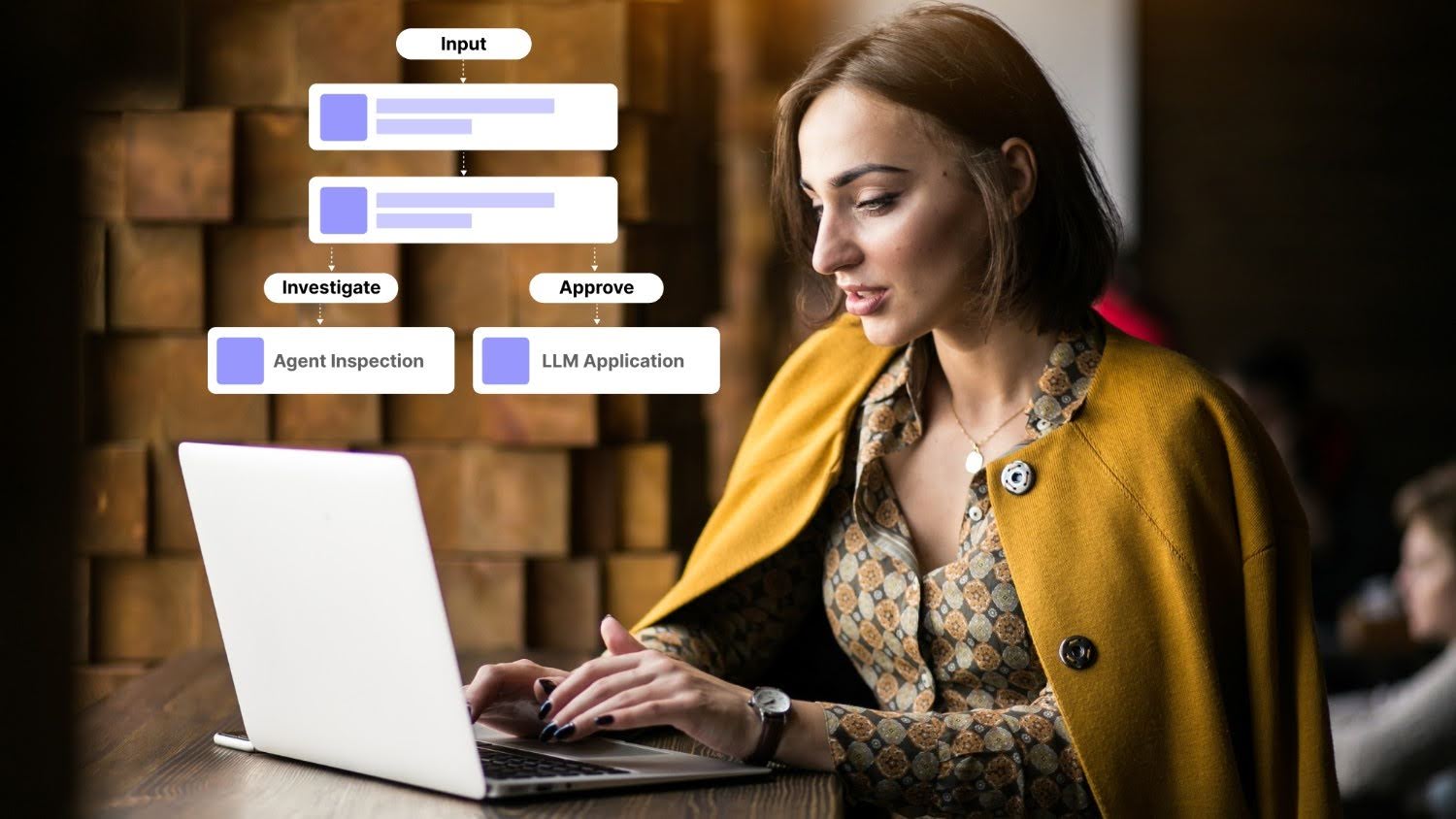
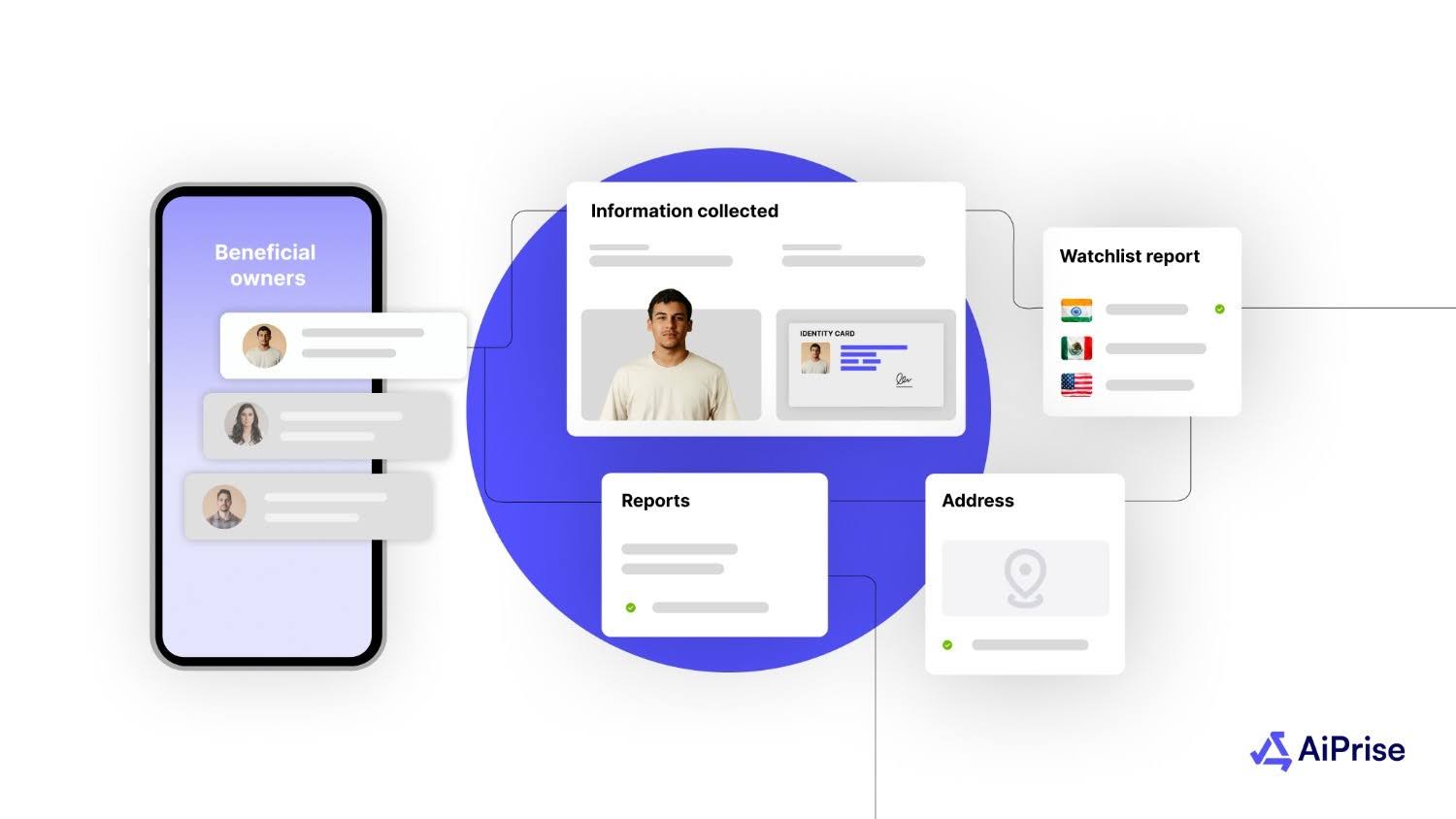
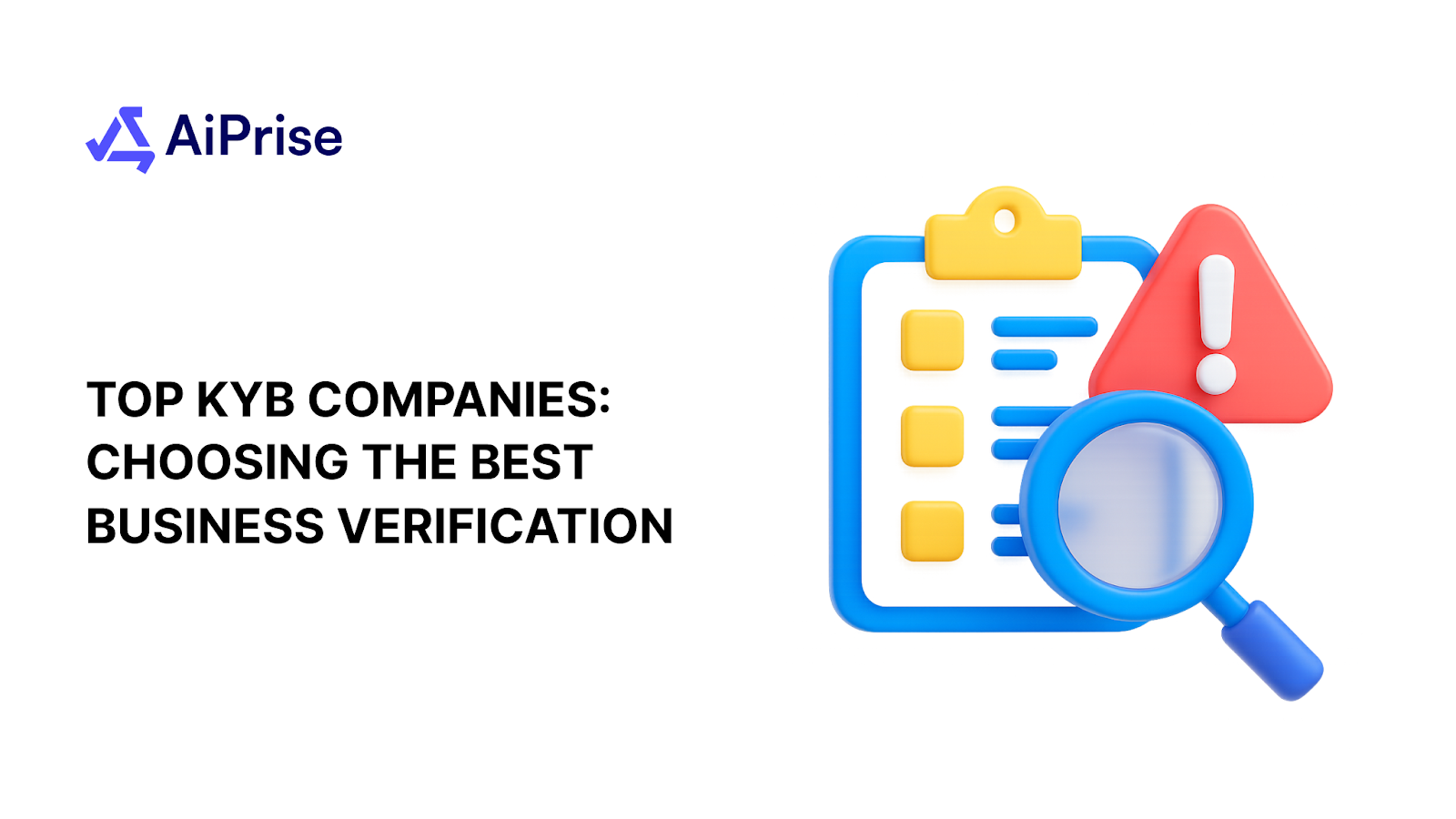
%20Can%20Improve%20Your%20Compliance%20Strategy.png)
